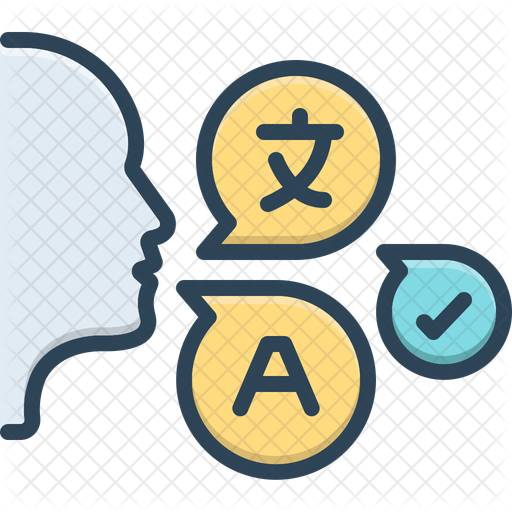
Chi tiết bài nghe

Effective English Listening: Unlocking the World of Language and Thinking
Welcome back to The Best Study Podcast! Have you ever felt like you ca...

Nghe và theo dõi transcript được highlight theo thời gian.
Luyện Shadowing
Chọn một đoạn audio gốc để nghe và sau đó ghi âm lại giọng của bạn.
Sẵn sàng...
Các bản ghi của bạn:
Chưa có bản ghi nào.
Bài Tập Của Bạn
Tổng điểm cần đạt: 0
Hãy trả lời hết tất cả các câu hỏi để đạt điểm cao nhất!
Lịch sử nghe
Đây là lịch sử các lần nghe của bạn.
| Ngày nghe | Điểm số | Trạng thái | Thời gian làm bài | Hành động |
|---|---|---|---|---|
| Chưa có lịch sử thi cho bài thi này. | ||||
00:00:00.142 --> 00:00:05.693
Have you ever found yourself in that frustrating
spot where you can read English pretty well,
00:00:05.693 --> 00:00:09.384
but then someone starts speaking and it just
feels like a blur of sounds you can't quite
00:00:09.384 --> 00:00:14.126
catch? maybe, you know, native speakers just
sound like they're talking incredibly fast
00:00:14.146 --> 00:00:18.827
and you feel completely left behind. Yeah, that's
super common. It really is. And for so many
00:00:18.827 --> 00:00:23.868
people, truly understanding spoken English
is, well, it's the biggest hurdle when learning
00:00:23.868 --> 00:00:29.090
the language. Definitely. But you're in the
right place. Today, we're taking a deep dive
00:00:29.090 --> 00:00:35.292
into effective English listening. And our mission
here, it's pretty clear. We want to help you
00:00:35.292 --> 00:00:40.743
figure out the real reasons behind those listening
struggles. Right. And more importantly, give
00:00:40.743 --> 00:00:46.235
you a clear, actionable way forward to get significantly
better. We're talking about moving beyond just,
00:00:46.235 --> 00:00:52.697
you know, hearing the words to actually grasping
the meaning, the intonation, even those little
00:00:52.697 --> 00:00:58.764
cultural hints hidden in the language. It's
about unlocking your listening potential. Okay,
00:00:58.764 --> 00:01:03.325
let's unpack this then. I bet a lot of you listening
are nodding along right now thinking, yep,
00:01:03.325 --> 00:01:08.537
that's me. I'm sure. So, expert, what's often
the very first thing learners bumped up against?
00:01:08.977 --> 00:01:13.978
That first wall when they try to really get
spoken English. And why is it so, well, so
00:01:13.978 --> 00:01:19.880
tough? That's a great starting point because
it's usually not just one thing. Often, the
00:01:19.880 --> 00:01:26.552
initial shock, it comes from the sheer speed.
Right, the speed. Spoken English can feel incredibly
00:01:26.552 --> 00:01:32.312
fast compared to reading. But beyond that,
you've got things like, um, elysion. That's
00:01:32.312 --> 00:01:38.085
where sounds kind of get omitted or disappear.
how and becomes in fish and chips. Exactly.
00:01:38.085 --> 00:01:42.018
That's a perfect example. And closely related
is connected speech. You might hear it called
00:01:42.018 --> 00:01:46.640
liaison or assimilation. That's where words
don't stand alone. They link together. Think
00:01:46.640 --> 00:01:51.563
about Mona for going to or whaty for what do
you. These aren't just lazy habits or slang.
00:01:51.563 --> 00:01:56.516
They're natural ways the language flows quickly.
Makes it efficient for speakers, but tricky
00:01:56.516 --> 00:02:02.985
for learners. So you've got speed, omitted sounds,
words running together. What else? Well then
00:02:02.985 --> 00:02:08.519
add in the constant challenge of words you just
don't know, unfamiliar vocabulary. Plus the
00:02:08.519 --> 00:02:12.993
huge variety of accents and different intonation
patterns you hear. Oh definitely, accents can
00:02:12.993 --> 00:02:18.618
be tough. They really can. And then there's
the difficulty when you don't have enough context
00:02:18.618 --> 00:02:22.652
in a conversation. And of course the pressure
you feel when you have to understand right
00:02:22.652 --> 00:02:27.803
then and there, like in a test or a live chat.
Wow, okay, so it's a real mix of factors.
00:02:27.803 --> 00:02:34.497
It really is a complex skill with multiple layers
making it challenging. That's a really clear
00:02:34.497 --> 00:02:38.499
breakdown of the challenges. It makes you think
though. Yeah. With all that difficulty. Yeah.
00:02:38.499 --> 00:02:43.903
Why is listening so, I mean, so important? Why
bother wrestling with this tough skill? Well,
00:02:43.903 --> 00:02:48.865
connecting this to the bigger picture, listening
is just fundamental. It's often described as
00:02:48.865 --> 00:02:54.206
the main input for language. The input, right,
like the fuel. Exactly like the fuel. Think
00:02:54.206 --> 00:02:58.888
of it as the nutrition your language skills
need to grow. And what's really interesting
00:02:58.888 --> 00:03:03.959
here is that strong listening skills don't just
exist on their own. They actually drive improvement
00:03:03.959 --> 00:03:09.231
elsewhere. Better listening leads naturally
to better speaking, more accurate pronunciation,
00:03:09.231 --> 00:03:14.192
a bigger vocabulary, even a more intuitive feel
for grammar. So it feeds everything else. It
00:03:14.192 --> 00:03:18.374
really does. It's not just a skill. It's kind
of the engine for overall language learning.
00:03:18.374 --> 00:03:23.860
And Practically speaking, you absolutely need
it for everyday chats, for work, and definitely
00:03:23.860 --> 00:03:29.182
for tests like IELTS or TOEFL. That makes sense.
So yeah, never underestimate listening. It's
00:03:29.182 --> 00:03:36.025
truly the foundation, the bedrock. So if listening
is the fuel, does that mean you could, in theory,
00:03:36.325 --> 00:03:42.037
get really good at understanding without actually
speaking much yourself? Or do you need the
00:03:42.037 --> 00:03:47.519
output, the speaking, to sort of refine the
input? And knowing that, is there like a strategic
00:03:47.519 --> 00:03:51.869
way we should approach listening? Different
types, maybe? That's a sharp question about
00:03:51.869 --> 00:03:56.661
input versus output. Input is definitely primary,
but you're right, output does help refine it.
00:03:56.721 --> 00:04:01.362
And yes, absolutely, there's a crucial strategic
difference in how we listen. We need to talk
00:04:01.362 --> 00:04:06.064
about passive listening versus active listening.
OK, passive versus active. Tell us more. Right.
00:04:06.144 --> 00:04:12.457
So passive listening, that's when you got English
on in the background, but you're not concentrating
00:04:12.457 --> 00:04:17.338
hard on it. Like music while working or a podcast
while driving. Exactly. Music, podcasts while
00:04:17.338 --> 00:04:23.076
you're doing chores, cooking. The main benefit
isn't really deep understanding at that moment.
00:04:23.076 --> 00:04:28.378
It's more about getting your ear used to it.
Tuning your ear. Kind of. You're letting your
00:04:28.378 --> 00:04:33.590
brain absorb the sounds, the rhythm, the melody
of English without the pressure of figuring
00:04:33.590 --> 00:04:38.128
it all out. Yeah. It helps you get familiar
with the soundscape, builds a foundation. OK.
00:04:38.128 --> 00:04:42.993
So that's passive. What about active? Active
listening is the opposite. It's listening with
00:04:42.993 --> 00:04:48.259
a clear goal, with high concentration. Like
steadying. Pretty much. You might be listening
00:04:48.259 --> 00:04:53.332
to answer specific questions, maybe filling
gaps in a transcript, or even write down exactly
00:04:53.332 --> 00:04:59.205
what you hear. Oh, OK. The power of active listening
is that it really boosts your deep comprehension,
00:04:59.205 --> 00:05:03.947
your analytical skills. It's like a workout
for your listening muscles. You're consciously
00:05:03.947 --> 00:05:09.731
engaging, processing the information. That distinction
is so important. I definitely remember trying
00:05:09.731 --> 00:05:15.754
to learn by just having English radio on constantly.
My ears got used to the sound, sure, but understanding.
00:05:16.874 --> 00:05:21.817
Not so much. Exactly. Passive listening helps,
but active listening is where the deep learning
00:05:21.817 --> 00:05:27.080
happens. It really highlights the difference
between just hearing and actually listening,
00:05:27.880 --> 00:05:32.703
which leads to a good question for everyone
listening. Think about your own routine. How
00:05:32.703 --> 00:05:38.486
much time do you usually spend on passive listening
versus active listening each day? Are you really
00:05:38.486 --> 00:05:42.818
engaging or mostly letting it wash over you?
That's a great point of reflection. So we've
00:05:42.818 --> 00:05:47.601
talked challenges, importance, the active passive
split. Now let's get practical. Let's talk
00:05:47.601 --> 00:05:53.326
brass tacks. What are some solid proven methods
people can use right now to actually improve
00:05:53.326 --> 00:05:57.919
their listening? Okay, good. Let's dive into
some effective active listening techniques.
00:05:58.120 --> 00:06:03.384
First up, dictation. Dictation, writing down
what you hear. Exactly. You listen to a short
00:06:03.384 --> 00:06:06.866
piece of audio, maybe just a sentence or two
at first, and you write it down word for word.
00:06:07.127 --> 00:06:12.088
Seems straightforward, but why is it so effective?
Because it's like a diagnostic tool. Every
00:06:12.088 --> 00:06:17.183
little mistake you make, every word you miss
or mishear, it tells you precisely where your
00:06:17.183 --> 00:06:22.547
understanding is breaking down. Ah, I see.
It finds the gaps. Precisely. It forces you
00:06:22.547 --> 00:06:27.061
to notice the difference between what you think
you heard and what was actually said. It's
00:06:27.061 --> 00:06:33.296
brilliant for nailing down tricky sounds, grammar,
and vocabulary. OK, dictation. What else? Next
00:06:33.296 --> 00:06:37.630
is shadowing. This one's a bit different. You
listen to audio and you try to speak along
00:06:37.630 --> 00:06:41.647
with it almost at the exact same time, like
an echo. So you're repeating immediately. Almost
00:06:41.647 --> 00:06:47.803
simultaneously, yeah. The goal isn't perfect
understanding of every word, but mimicking
00:06:47.803 --> 00:06:52.998
the speaker's rhythm, intonation, and pace.
And that helps? It dramatically improves your
00:06:52.998 --> 00:06:57.422
own pronunciation, your intonation patterns,
and helps you speak more naturally and fluidly.
00:06:57.682 --> 00:07:03.408
You start to internalize the rhythm of English.
Interesting. OK. Dictation for accuracy, shadowing
00:07:03.408 --> 00:07:08.618
for flow, anything else? Yes, summarizing. Listen
to a piece of audio, maybe a short news report,
00:07:08.618 --> 00:07:13.882
a clip from a talk, and then in your own words,
summarize the main points. So checking overall
00:07:13.882 --> 00:07:19.165
comprehension. Exactly. It forces you to identify
the key message, filter out the less important
00:07:19.165 --> 00:07:24.508
details. Great for building that big picture
understanding. Makes sense. Any general advice
00:07:24.508 --> 00:07:30.741
for using these methods? Definitely. A key tip.
Start with easier material. Find audio that's
00:07:30.741 --> 00:07:36.348
a bit slower on topics you already know something
about. Build your confidence first. Don't jump
00:07:36.348 --> 00:07:42.690
straight into fast, complex stuff. Start slow,
build up, good advice. And what's really exciting
00:07:42.690 --> 00:07:47.741
here is just how many resources are out there
now to help you, the listener, on this journey.
00:07:47.741 --> 00:07:52.283
It's not like you have to find one perfect thing.
Oh, absolutely not. The variety is huge, and
00:07:52.283 --> 00:07:57.394
you can tailor it to your level. For beginners,
I'd strongly suggest things like simple podcasts
00:07:57.394 --> 00:08:02.165
designed for learners. Like the ones from the
BBC or VOA. Exactly. Learning English, BBC,
00:08:02.486 --> 00:08:07.490
VOA, Learning English, they're excellent. Also,
simple audio stories, even animated cartoons
00:08:07.490 --> 00:08:12.343
can be great. The language is usually clearer,
maybe a bit slower. Okay, beginners covered.
00:08:12.343 --> 00:08:16.366
What about intermediate learners? For intermediate
folks, you can start exploring podcasts on
00:08:16.366 --> 00:08:22.149
topics you're actually interested in. That boosts
motivation, like TED Talks maybe, or news podcasts.
00:08:22.149 --> 00:08:26.753
TED Talks are fantastic. The Daily from the
New York Times, other similar news podcasts.
00:08:26.933 --> 00:08:31.796
Also, movies or TV series, but maybe start with
English subtitles on that gives you support.
00:08:31.796 --> 00:08:36.009
Right, subtitles can bridge the gap. And for
advanced listeners, for advanced learners,
00:08:36.009 --> 00:08:42.152
can really push yourself. Listen to standard
news broadcasts, BBC, CNN, whatever your preference
00:08:42.152 --> 00:08:46.564
about subtitles. Yes. Try watching movies and
series without subtitles. It's a real test.
00:08:46.564 --> 00:08:51.487
Also, look for specialized podcasts in your
field of interest or work. Maybe university
00:08:51.487 --> 00:08:58.188
lectures available online. So really diving
into authentic complex material. Exactly. And
00:08:58.188 --> 00:09:03.172
across all levels, don't forget, dedicated English
learning apps. Many have great listening practice
00:09:03.172 --> 00:09:08.787
built in. And YouTube, of course, is just an
endless ocean of content. really is an amazing
00:09:08.787 --> 00:09:13.871
resource. That's a fantastic list covering all
the bases. It makes me curious, for you listening,
00:09:13.971 --> 00:09:18.225
do you have a favorite listening resource, something
that really clicked for you? It's always interesting
00:09:18.225 --> 00:09:23.639
to hear what works for different people. Definitely.
And beyond these specific methods and resources,
00:09:23.639 --> 00:09:29.022
there's something else that's just crucial.
What's that? Persistence. and creating an
00:09:29.022 --> 00:09:33.584
immersive environment, you really can't overstate
how important these are. So consistency is
00:09:33.584 --> 00:09:39.325
key. Absolutely. Making English listening a
regular daily habit, even if it's just for
00:09:39.325 --> 00:09:44.727
a short time each day, and actively trying
to surround yourself with English. How do mean?
00:09:45.207 --> 00:09:50.129
Well, little things. Change your phone's language
setting to English. Try watching the news in
00:09:50.129 --> 00:09:54.880
English sometimes instead of your native language.
Play English radio or podcasts in the background.
00:09:55.288 --> 00:10:00.870
create a sort of English bubble around yourself.
Immerse yourself. Precisely. And don't be afraid
00:10:00.870 --> 00:10:05.781
to re-listen to things. Hearing something multiple
times isn't cheating. Each listen can help
00:10:05.781 --> 00:10:10.142
you catch something new or just solidify your
understanding. That's a good point. Sometimes
00:10:10.142 --> 00:10:15.374
I only catch certain things the second or third
time. Exactly. And finally, set realistic goals
00:10:15.374 --> 00:10:21.155
for yourself. Don't expect to understand everything
overnight. Celebrate the small wins, the little
00:10:21.155 --> 00:10:26.496
improvements. Every step forward counts. That
really is such an important perspective. Keeping
00:10:26.496 --> 00:10:33.391
that positive mindset, acknowledging the progress,
however small it feels, that's vital for sticking
00:10:33.391 --> 00:10:37.274
with it long term, isn't it? It absolutely is.
It's a journey, like you said earlier, not
00:10:37.274 --> 00:10:41.947
a sprint. Right. So we really encourage you
to try and see English listening, not as some
00:10:41.947 --> 00:10:47.982
horrible chore, but more like an exciting journey
of discovery. A journey like And remember,
00:10:47.982 --> 00:10:53.471
ideally, you're not just working on listening
in isolation. It works best when you integrate
00:10:53.471 --> 00:10:57.886
it with your speaking, reading, and writing
practice. All the skills support each other.
00:10:57.886 --> 00:11:03.060
They build on each other. Exactly. Creating
a much stronger, more flexible overall ability
00:11:03.060 --> 00:11:09.246
in English. And maybe as a final thought, as
you keep going on this listening journey,
00:11:09.246 --> 00:11:15.311
consider this. Truly mastering English listening
isn't just about understanding the words someone
00:11:15.311 --> 00:11:20.771
is saying. It's really about unlocking a much
deeper connection. A connection to new ideas,
00:11:20.771 --> 00:11:25.433
to different cultures, to a whole wider world
of knowledge and opportunity. It can actually
00:11:25.433 --> 00:11:29.525
transform your understanding in ways you might
not even imagine right now. Well said. So we
00:11:29.525 --> 00:11:34.077
really hope you'll apply some of the methods
we talked about today. Be persistent, find
00:11:34.077 --> 00:11:38.880
ways to make it enjoyable, and celebrate your
progress along the way. You absolutely can
00:11:38.880 --> 00:11:39.300
do this.
Từ:
Notebook
Bạn cần đăng nhập để sử dụng tính năng Notebook.
Đăng nhậpThành Công

 Luyện nghe theo level
Luyện nghe theo level
 Phát âm
Phát âm
 Bài tập
Bài tập
 Chấm điểm writing
Chấm điểm writing



Bình luận